Here is your crash course in the principal ways that NetSuite can integrate into an ecommerce business!
Oracle NetSuite is the leading cloud enterprise resource planning (ERP) solution for mid-market and enterprise-level organizations. Because its architecture allows for nearly unlimited access to your data, it has become known as one of the most useful software solutions for reporting purposes, and really handling just about any business process. But NetSuite goes beyond warehouse management, tracking inventory, advanced financials and taxes, customer relationship management, ordering, project management, fixed asset administration, billing, budgeting, and revenue planning. In recent years NetSuite added SuiteCommerce Advanced to this toolbox, one of its most powerful tools yet for increasing market share and profit.
SuiteCommerce Advanced is NetSuite’s flagship ecommerce solution, sitting flawlessly on top of NetSuite ERP. Previous to SuiteCommerce, companies had to integrate other ecommerce website hosting services (such as Shopify, Magneto, or WooCommerce) into their ERP using a custom integration or an integrator platform. In this scenario, NetSuite still offers a lot of value as a back-end ERP, especially due to its capable order management tools and its customizability as an organization evolves.
However, these third-party ecommerce integrations are typically expensive to set up initially and, even more importantly, add unnecessary complexity, complexity that can easily become a source of inefficiencies and ballooning maintenance costs as your business changes or grows.
Now that SuiteCommerce exists, those challenges are avoided (or at least greatly reduced) simply by choosing to marry NetSuite to this purpose-built ecommerce platform.
Shared Ecommerce Channels
Aside from working in harmony with a website you own, NetSuite can also serve as the backend for selling on many shared ecommerce channels such as Amazon, eBay, and Walmart. Using shared websites like these in conjunction with NetSuite can provide your organization with more exposure and channels of revenue, while retaining the automation necessary for large-scale ecommerce. This approach can certainly make sense for many businesses, especially those just beginning to establish their NetSuite ecommerce business.
It is worth taking into consideration that using ecommerce platforms other than your own website will almost always result in lower profit margins, as platforms like Amazon take a hefty cut. Furthermore, competition might be higher on a shared channel, as many sellers are sharing the same exact space.
Even if selling from a platform like Amazon makes sense for your business right now, that can be done in parallel with building and growing your SuiteCommerce website, a hybrid approach which offers the benefit of diversifying your sales channels.
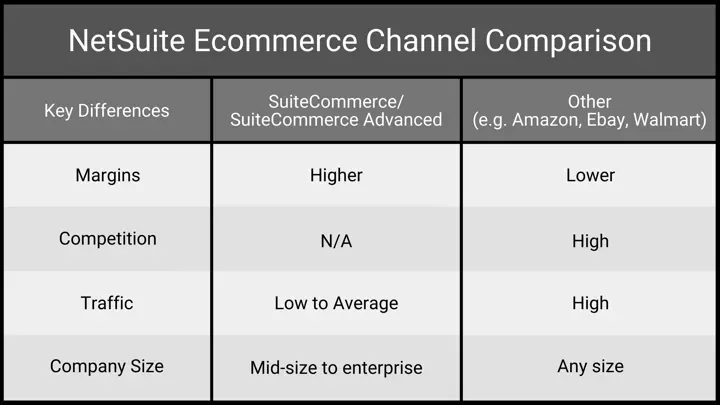
Sometimes you will find it beneficial to sell just a fraction of your products on a high-traffic shared platform, to increase awareness of your company. Even by just having one product on Amazon (or Walmart, eBay, Overstock, etc.) you can reach a larger audience from your own website due to increased awareness that leads people to seek out your products.
If you do decide to use shared ecommerce channels, NetSuite inventory and order management allows you to manage all of your items/products inside a single ERP solution, with automation in place to help maintain your data integrity. In addition, NetSuite allows you to specify which pricing to use for each ecommerce solution (on a SuiteCommerce site, you can even set different pricing for individual customers!). This makes it easier for you to create automatic pricing rules that maintain acceptable profit margins across all of your items. For companies that have thousands or even millions of SKUs inside NetSuite, this type of automated control is especially important.
How do I integrate NetSuite into a major ecommerce solution?
There are two options for integrating NetSuite into a separate ecommerce solution. These are (1) using a connector service and (2) a custom NetSuite integration. Both approaches deserve more than just a brief introduction, so let's dive into them one at a time...
Connector Service
A connector service serves as a go-between between your ERP and whatever other software you need the ERP to talk to. It is basically a field-mapping tool with which you match the fields in NetSuite to the appropriate fields in the other software. For instance, it is common for you to need your internal NetSuite transaction id to be stored with each transaction in that other ecommerce solution so you can keep track of which transaction records are actually the same. Here is an illustration of a few of the fields that would commonly be mapped between the two databases:
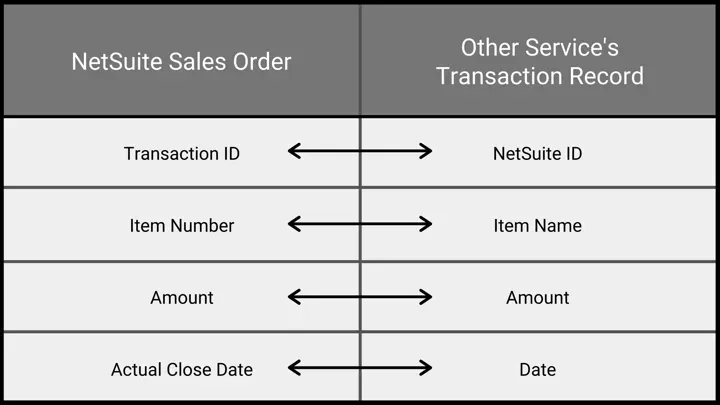
Connector services are configurable by someone with only basic coding experience, but they still have a substantial learning curve, and it will definitely be worth it to have someone experienced help you perform the initial implementation.
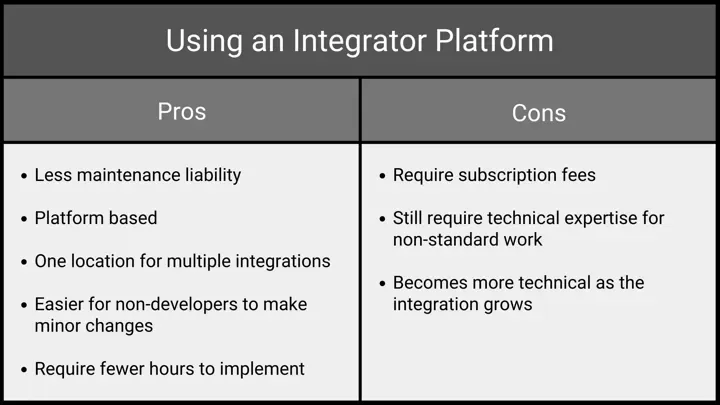
Three notable options for connector services are Channel Advisor, Celigo, and FarApp. There are also less expensive options beyond these three; just be aware that some of the cheaper solutions might only work with one platform (such as just Amazon or just eBay), so they only make sense if you don’t expect your business to expand beyond that particular ecommerce platform anytime soon.
Custom Integration
Custom integrations require a knowledgeable NetSuite developer to implement. They typically use either SOAP calls or Restlets, which are APIs (application program interfaces) that make integrations straightforward for developers.
The most common reasons companies decide to build custom integration based on NetSuite’s APIs are (1) in order to maintain more control over the integration to (2) to eliminate the long-term licensing fees of an integrator platform. Both are significant benefits.
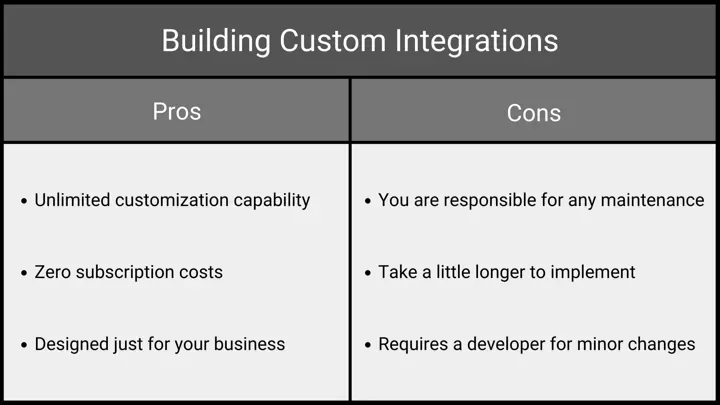
It will be up to you to decide which method is best for you. We recommend bringing a trusted NetSuite consultant into the conversation before you commit to either a custom integration or using a third-party connector.
.
SuiteCommerce Standard vs SCA
You have probably already stumbled across two slightly different product versions for SuiteCommerce: SuiteCommerce Standard (SC), and SuiteCommerce Advanced (SCA).

It is important to understand the difference between the two options since one is half the price of the other. It is a common misconception that SuiteCommerce Standard (now just called SuiteCommerce) does not allow you to customize the theme or extensions. In fact, SC allows you to do most of the same customizations as SCA does.
The primary difference between the two is that SuiteCommerce Advanced gives developers total access to the source code, while SuiteCommerce Standard does not. Heavy customization that changes the architecture of the platform will require SCA to be able to accomplish the goal.
The easiest way to identify which edition of SuiteCommerce you will need to achieve the customizations you are looking for is to discuss your business needs and website plans with a SuiteCommerce developer. They should be able to tell you if a source code change is likely to be required.
It is worth knowing that you can upgrade to SCA later if you only need SC right now. In fact, it is not difficult to transition from SC to SCA. If you do not need SCA at the moment, you could plan to change in a few years. You don't need a brand new implementation to switch; it only takes a day or two to fetch the code from SC and deploy it to an SCA site. Once you are running on SCA, you will find that your business runs up against very few limitations related to ecommerce!
For more information on the similarities and differences between these two solutions, check out our blog post on the topic... SuiteCommerce [Standard] vs. SuiteCommerce Advanced.
NetSuite Commerce Partner
That's all for now, but we hope that this article was helpful and informative! If you have general questions about SuiteCommerce, or specific questions about how you can improve your own SuiteCommerce website, feel free to contact our team at any time. Anchor Group is a certified Oracle NetSuite Commerce Partner, and is equipped to handle all kinds of SuiteCommerce projects, large or small!

We are a premium SuiteCommerce agency that creates powerful customer portals. Unlike our competitors, we have already solved your problems.
FREE SuiteCommerce Book
If you liked this article, you'll LOVE our book on SuiteCommerce! How do we know? Because the content in this article was reproduced from a section of our book! So, what are you waiting for?
Order the free SuiteCommerce book today, and we'll even pay for shipping!
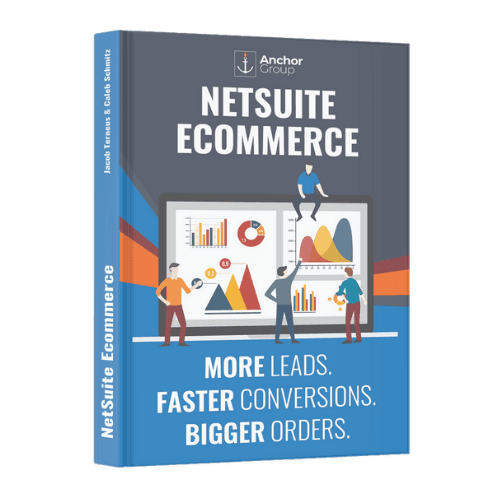
Tagged with Solutions
